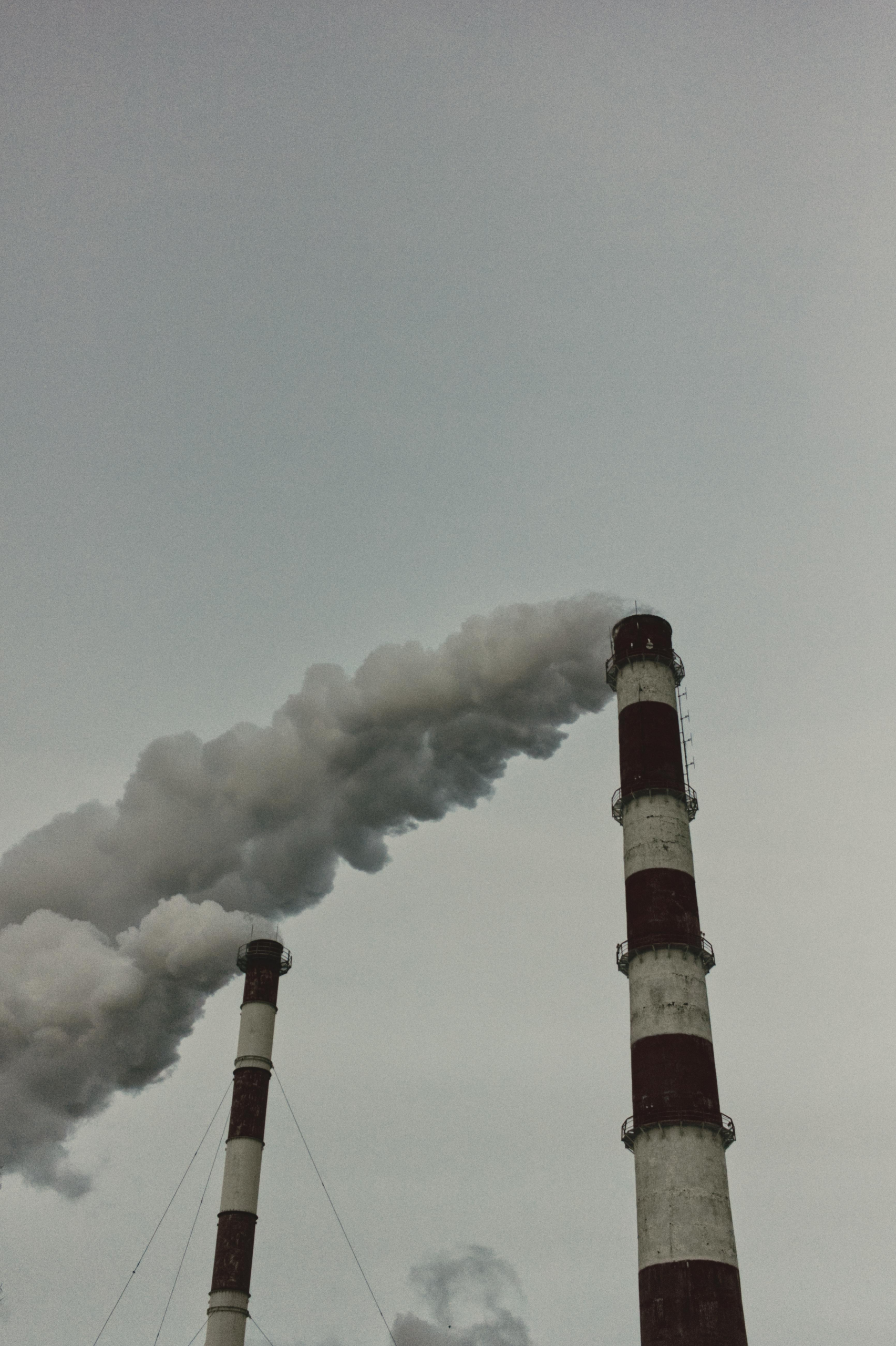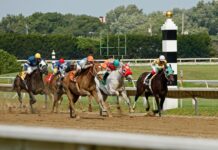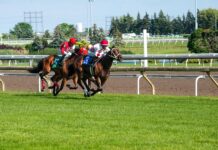So, MLB weather impact on betting lines — sounds straightforward, right? But what if I told you it’s way messier than just “rain delays” or “wind blowing the ball away”? I mean, how does weather actually change odds in baseball betting? It’s not just a simple “game on or off” situation. You’d think this would be obvious, but the truth is, weather plays a sneaky role in shifting betting lines, and not many folks are talking about it. Why is no one talking about how temperature, humidity, or even the tiniest breeze can totally flip the script on your favourite MLB odds? Not gonna lie, this surprised me too.
Maybe it’s just me, but when I first started digging into the MLB weather impact on betting lines, I expected some clear-cut patterns. Nope, it’s a jungle out there. From unexpected rain showers that delay the game to blistering heat that tires out pitchers faster, the weather can seriously mess with the way bookmakers set their lines. And don’t get me started on how wind direction can turn a routine fly ball into a home run or a pop-out. So, what if we’ve been wrong all along, thinking weather is just a minor detail in baseball betting? Spoiler alert: it’s not. If you’re into making smarter bets, understanding these weather factors might just be your secret weapon.
In this article, we’re diving deep into the MLB weather impact on betting lines — breaking down the quirks, the surprises, and the hidden ways weather tweaks the odds. Whether you’re a seasoned bettor or just curious, stick around because the way weather affects baseball betting is way more fascinating (and complicated) than meets the eye. Trust me, once you get this, you’ll never look at a rainy game the same way again.
How Do MLB Weather Conditions Like Rain and Wind Influence Betting Lines?
Alright, so you wanna know how MLB weather conditions like rain and wind influence betting lines? Honestly, it’s one of those things that sounds way more complicated than it really is, but somehow bookies, bettors, and fans lose their minds over it every single season. I mean, seriously, who even came up with this obsession about the weather messing with the odds? But hey, since you asked, let’s dive in — or at least I’ll try to make some sense out of this, no promises though.
How Do MLB Weather Conditions Like Rain and Wind Influence Betting Lines?
First off, baseball is pretty much an outdoor sport, right? So unlike, say, basketball or tennis which can get moved inside, MLB games are at the mercy of Mother Nature. Rain and wind aren’t just annoying; they actually change the way the game unfolds, and thus, how bookmakers set their odds.
Rain tends to slow the game down. Groundskeepers might have to hose down the field or wait for puddles to dry up, which leads to delays or even postponements. But more importantly for betting lines, rain can make the ball heavier and the field slipperier. This means hitters might not get those sweet home runs, and pitchers might have an easier time controlling the game. So, naturally, odds may shift to favour pitchers or under bets (fewer total runs scored).
Wind? Oh, that’s a whole different kettle of fish. A strong wind blowing out towards the outfield can turn a routine fly ball into a home run, pumping up the scoring. Conversely, wind blowing in can smother those fly balls, favouring pitchers again. Bookies try to account for this by adjusting the moneylines and run lines accordingly.
But here’s the kicker: weather forecasts aren’t 100% reliable. Sometimes the wind shifts midway, or a rain shower passes in 10 minutes but throws everyone off for hours. So, you’ve got this messy game of chance layered on top of a game of chance. Lovely.
MLB Weather Impact On Betting Lines: How Does It Change Odds?
Okay, picture this: you’re a bookmaker (or, more likely, a bettor trying to understand the madness). How do you even begin to factor weather in?
Here’s a rough rundown:
Rain Delays/Postponements
- If rain is heavy, the game might get delayed or postponed. Bookmakers will often suspend betting or adjust lines to reflect the uncertainty.
- Light rain? Odds might not change much, but expect totals (runs scored) to dip slightly.
Wind Direction and Speed
- Wind blowing out = higher scoring expected → totals go up, maybe slight edge to stronger hitters.
- Wind blowing in = lower scoring → totals go down, pitchers get the nod.
Temperature
- Cold weather usually means the ball doesn’t travel as far, so fewer home runs → lower scoring games.
- Hot weather can boost offence.
Field Conditions
- Wet grass or muddy infield can slow down runners and impact fielding, potentially helping pitchers (fewer errors = fewer runs).
So the odds might look something like this (very simplified example):
| Weather Condition | Expected Effect on Game | Betting Line Impact |
|---|---|---|
| Heavy Rain | Game delay or postponement | Suspended bets, cautious lines |
| Light Rain | Slower game, fewer runs | Totals slightly lowered |
| Wind Outfield | More home runs, higher scoring | Totals increased, favours hitters |
| Wind Infield | Less scoring | Totals decreased, favours pitchers |
| Cold Temperature | Less offence | Lower totals |
| Hot Temperature | More offence | Higher totals |
Sorry, had to grab a coffee — anyway…
You might be wondering if weather really swings the moneyline odds drastically. Usually, it doesn’t flip a game on its head unless it’s some extreme condition like a thunderstorm or gale-force winds. But for totals (over/under bets), weather can be a game-changer. Bookies are pretty sharp and quick to adjust, but sometimes they miss subtle shifts — like when wind suddenly dies down or rain starts mid-game.
Also, some stadiums have quirky weather patterns that make it even harder. Take Wrigley Field in Chicago, for example. The wind there can switch directions multiple times during a game, making it a nightmare for oddsmakers. So if you’re betting there, you better hope you’ve got some insider info or just pure luck.
Why This Still Matters (Even If It’s a Bit Annoying)
You might think, “Why bother? It’s just weather.” But here’s the deal: weather can subtly influence the outcome, and for bettors trying to squeeze out an edge, every
Top 5 Ways Weather Impacts MLB Odds and What Bettors Need to Know
Alright, so let’s dive right into this weird little corner of the baseball universe that nobody really talks about much but somehow totally messes with your betting game: weather. Yeah, weather. You’d think it’s just about rain delays and whether they cancel the game, but nope, it’s way more complicated—and way more annoying—than that. So here’s my take on the top 5 ways weather impacts MLB odds and what bettors actually need to know. Spoiler alert: it’s not as straightforward as you’d hope.
MLB Weather Impact On Betting Lines: How Does It Change Odds?
First off, the weather doesn’t just randomly make odds go up or down because someone feels like it. There’s real logic behind it, even if it feels like a cosmic joke sometimes. Bookmakers (the clever sods) adjust the lines based on expected weather conditions because it changes how the game’s played, which in turn affects who’s more likely to win or how many runs get scored.
For example, a windy day at Wrigley Field? That’s a nightmare for pitchers but a dream for hitters. So if the wind’s blowing out, expect the over/under totals to be jacked up because more home runs = more runs = more excitement (and more money). Conversely, if it’s a cold, damp day in Boston, runs might be scarce, so the lines shift accordingly.
Top 5 Ways Weather Impacts MLB Odds
Here’s the meat of it—why weather actually matters when you’re trying to put your money where your mouth is.
Wind Direction and Speed
This is probably the biggest weather factor that messes with the odds. Wind blowing out towards the outfield can turn routine fly balls into dingers, upping run totals and favouring hitters. When the wind blows in, well, good luck getting that ball over the fence. So, odds for runs and game outcomes shift big time depending on this.Temperature
It might sound silly, but colder air is denser, which means the ball doesn’t travel as far. Hot days, on the other hand, make the ball fly like it’s got rockets on it. So if it’s a chilly day in, say, Chicago, expect fewer runs, and the betting lines will reflect that. Not really sure why this matters so much, but science is science.Rain and Humidity
Rain delays are obvious, but the lingering humidity can be a subtle game-changer too. Humid air actually helps the ball carry further (yeah, weird), so on muggy days, pitchers might struggle more. But rain can also make the ball slick, affecting pitchers’ grip and control. Confusing? Yeah, tell me about it.Sunlight and Time of Day
Day games vs night games ain’t just about when you watch. The sun’s angle can mess with batters’ visibility—blinding them or making it easier to pick up pitches. Plus, ballparks can have crazy microclimates. For instance, a stadium surrounded by concrete can trap heat, affecting conditions compared to a park near the water. Bookies definitely have a field day (pun intended) tweaking odds based on these factors.Field Conditions
After heavy rain, the outfield can get soggy, slowing down ground balls and affecting fielders’ footing. That’s a nightmare for defensive plays and can lead to more errors or longer innings. Lines will shift to consider that—slower games might change run expectations, which in turn affect over/under bets.
Sorry, had to grab a coffee — anyway…
While all this sounds like a lot of science and guesswork, it really boils down to how weather tweaks the balance of power between pitchers and hitters. The weather basically turns the game into a slightly different beast every time. So if you’re betting on MLB, ignoring weather is like trying to drive blindfolded. You might get lucky, but probably not.
Quick Table: Weather Factors vs Their Betting Impacts
| Weather Factor | Impact on Game | Effect on Odds |
|---|---|---|
| Wind (Outfield) | More home runs or fewer | Higher run totals, favours hitters |
| Temperature | Ball travels further or not | Hot = more runs; Cold = fewer runs |
| Rain | Delays, slippery conditions | Game delays/cancellations, erratic play |
| Humidity | Ball carries more | Slight increase in runs |
| Sunlight/Time | Visibility changes | Affects batter performance |
| Field Conditions | Slower field, more errors | Potentially longer games, more runs |
Why This Still Matters (Even If It Drives You Nuts)
Look, I get it. Sometimes
Can Weather Forecasts Predict MLB Game Outcomes? Exploring the Betting Line Shifts
So, can weather forecasts actually predict MLB game outcomes? I mean, it sounds bonkers, right? Like, what’s next—checking if the wind’s blowing left before placing a bet? But hey, turns out the weather does have a sneaky little influence on how betting lines shift in baseball. And maybe, just maybe, it’s not all smoke and mirrors. Or is it? Honestly, I’m not entirely sure myself, but let’s dive into the murky world of MLB weather impact on betting lines and see what we can dig up.
Why Weather Even Matters in Baseball Betting
First off, baseball isn’t like football or rugby where rain might just turn the pitch into a mud bath and totally wreck the game. Nah, baseball’s a bit more subtle. The game’s played outdoors, obviously, and factors like wind, temperature, humidity, and even air pressure can kinda tweak how the ball flies. And since runs and hits are what bettors care about (duh), weather conditions can nudge the odds.
Here’s the gist:
- Wind direction and speed: A strong wind blowing out towards the outfield can turn routine fly balls into home runs (or at least hopeful ones). Conversely, wind blowing in can suppress scoring.
- Temperature: Warmer air tends to make the ball travel farther, so hotter days often mean more runs scored.
- Humidity: High humidity can affect ball flight but in a weird way — sometimes it helps the ball carry, sometimes it doesn’t, depending on other factors.
- Rain and delays: Obvious impact on game flow, and sometimes games get postponed or called off, messing with betting markets.
So yeah, these elements sort of matter. But can they actually predict who’s gonna win? That’s a different kettle of fish.
MLB Weather Impact On Betting Lines: How Does It Change Odds?
Now, here’s where it gets interesting — sportsbooks and oddsmakers don’t just slap down lines based on team stats and player form anymore. No, they’re monitoring weather reports like hawks. Like, they’ve got meteorologists on payroll or something. Actually, scratch that, probably they just have access to fancy weather models and algorithms that spit out probabilities.
When the forecast hints at weather that could boost scoring, the “over” lines (where you bet on total runs scored) often get shorter odds. Conversely, if it looks like a dreary, cold, wind-in-the-face kinda day, the under might look more appealing.
Betting lines will shift accordingly:
- Before weather info is public: Lines reflect team strength, pitchers’ stats, recent performances.
- After weather info hits: If a sudden cold snap or gusty wind is forecast, lines adjust — sometimes subtly, sometimes dramatically.
- During game day: Weather updates or delays can cause live betting lines to swing wildly.
In fact, some savvy bettors try to get in early, before the lines adjust for weather. Because once the bookies incorporate that, the odds are “fairer,” meaning less value for the punter. It’s kinda like trying to buy a house before everyone else finds out there’s a new Tesco opening nearby — you get a better deal.
Historical Examples of Weather Affecting MLB Games and Lines
Not gonna pretend this is an exact science, but there are some memorable moments where weather definitely played spoilsport or boon.
- In 2012, a game at Citi Field was played with gale-force winds blowing in, leading to a rare pitchers’ duel and a low-scoring affair — the odds shifted to favour the under significantly.
- Conversely, in some ballparks like Coors Field in Denver, notorious for thin air and high altitude, hot days make the ball fly so much that over bets are often favoured.
- Rain delays or postponements can cause futures betting markets to shift — if a star pitcher gets a rest day due to a rainout, suddenly the odds for their team winning the next day change.
So… Can Weather Forecasts Actually Predict MLB Game Outcomes?
Honestly? I’d say it’s a mixed bag. Weather forecasts give you data points that can tweak the probabilities, sure. But predicting a baseball game solely based on weather? That’s a bit like trying to guess the lottery numbers by reading tea leaves.
There’s just too many variables:
- Pitcher and batter matchups
- Team strategies
- Injuries
- Random chance (like that one time a squirrel ran onto the field and distracted the outfielder — true story, look it up)
- Umpire decisions (yeah, seriously)
Weather is part of the puzzle, but rarely the whole picture. It might shift odds by a few percentage points here and there, but it won’t magically tell you who’ll win. So if you’re relying on weather to place your bets, don’t be surprised if things go sideways.
Quick Recap
Why Do Temperature Changes Affect MLB Betting Markets? Expert Insights Revealed
Alright, let’s dive into this weird world of MLB betting and weather. Seriously, why do temperature changes even affect MLB betting markets? I mean, you’re betting on baseball, not the weather forecast, right? But nope, turns out Mother Nature’s mood swings play a bigger role than you’d think. Maybe it’s just me, but whenever I see a sudden dip in temperature before a game, I instantly wonder if the odds will shift. Spoiler alert: they usually do. So buckle up, because we’re about to unravel this mystery with some expert-ish insights, a bit of sarcasm, and probably a few “wait, what?” moments.
Why Do Temperature Changes Affect MLB Betting Markets?
First off, let’s get the obvious out of the way – baseball is an outdoor sport. Duh. Unlike basketball or ice hockey, where indoor arenas mean consistent conditions (well, more or less), baseball players have to battle the elements. When temperatures drop or spike, it actually changes how the game plays out. Not just for the players but for the ball itself. And yeah, the betting markets notice that.
Some factors to consider:
- Ball flight: Cooler air is denser, so the ball doesn’t travel as far. That usually means fewer home runs, which can totally mess with over/under lines.
- Player performance: Cold hands can’t grip the ball as well, making pitchers less accurate and hitters more jittery.
- Injury risks: Lower temps might increase the chance of muscle strains or cramps, so teams might be less aggressive.
- Game pace: Cold weather can slow down the game rhythm, making it more of a pitching duel than a slugfest.
Honestly, you might think these are minor things, but sportsbooks and sharp bettors obsess over them. It’s almost like a secret science — except not so secret because every Tom, Dick, and Harry with an internet connection talks about it.
MLB Weather Impact On Betting Lines: How Does It Change Odds?
Okay, so you’ve got a game scheduled, but the forecast drops from a balmy 75°F to a chilly 50°F. What happens? Let’s break it down:
- Pitcher vs Batter Matchup: Cold weather tends to favour pitchers. So, if you had a strong hitter favoured to smash a home run, the odds might adjust to reflect a lower chance of scoring.
- Total Runs (Over/Under): Because fewer runs are expected, sportsbooks often lower the total runs line. For example, an over/under might shift from 8.5 runs to 7.5.
- Moneyline Adjustments: If one team’s strength lies in power hitting and the temperature drops, the moneyline odds might shift slightly in favour of the opposing team with better pitching or defensive skills.
- In-Game Props: Weather can also affect prop bets, like “Will there be a home run?” or “Total strikeouts.” Cooler temps often make these props riskier.
Here’s a rough idea of what you might see:
| Weather Condition | Expected Impact on Odds | Example Shift |
|---|---|---|
| Warm (70-80°F) | Higher scoring, more home runs | Over/Under goes up by 0.5 runs |
| Moderate (60-70°F) | Neutral | Odds stay relatively stable |
| Cool (50-60°F) | Lower scoring, pitching favoured | Moneyline shifts slightly to pitchers’ favoured side |
| Cold (<50°F) | Defensive, fewer runs | Over/Under drops by 1+ runs |
Sorry, had to grab a coffee — anyway…
Back to the weather stuff. Now, some bettors swear by their “weather models” and claim they can predict how the game will go based on temperature, wind direction, humidity, blah blah blah. Honestly, it sounds like a lot of guesswork mixed with wishful thinking.
But here’s the kicker: weather isn’t just about temperature. Wind can blow balls out or keep them in the park, humidity affects ball carry, and rain delays? Don’t even get me started — they can turn a game into a complete nightmare for bettors.
Quick History Lesson: Weather and Baseball Betting
Not to be a bore, but if you peek back at MLB history, you’ll notice some classic games where weather totally changed the outcome. For instance, back in the 1980s, there was this game where a sudden cold snap turned a slugfest into a pitchers’ duel, surprising everyone. Sportsbooks learned quickly that ignoring weather was like leaving money on the table.
Nowadays, most sportsbooks have entire teams — or at least one person — obsessively monitoring weather forecasts. It’s like a game within the game. And for bettors? Knowing how temperature affects ball flight
The Ultimate Guide to Understanding MLB Weather Impact on Live Betting Odds
Alright, so you wanna know about MLB weather impact on live betting odds? Well, buckle up because this isn’t as straightforward as you might think. I mean, who really cares about the weather when you’re just trying to place a quick bet, right? But for some reason, it matters a lot more than you’d expect, especially when the game’s actually going on. Seriously, there’s a whole science behind it, and honestly, sometimes it feels like overcomplicating things just to mess with us punters.
The Ultimate Guide to Understanding MLB Weather Impact on Live Betting Odds
Okay, first off, let’s just clear the air: MLB games are played outdoors. Shocking, I know. So naturally, weather conditions — rain, wind, temperature, humidity — all these factors come into play. And when you’re live betting, meaning you’re placing wagers while the game’s still happening, the odds can swing faster than you can say “home run.”
Here’s a quick lowdown on why weather affects betting lines:
- Wind: Can either help hitters or pitchers. A strong wind blowing out to the outfield usually means more home runs. But if it’s blowing in, forget about those dingers.
- Rain: Not just annoying for fans, but it can slow down the game, affect the ball’s grip, and sometimes even delay or postpone the game. Postponements obviously mess with betting lines big time.
- Humidity & Temperature: High humidity can make the ball travel farther (because the air is thinner, or wait, is it thicker? Eh, whatever), and colder temps tend to suppress offense.
- Cloud Cover & Sunlight: Bright sunlight can be a pain for fielders trying to catch fly balls, while overcast days might favour pitchers.
Now, live betting odds are supposed to reflect all this, updating in real time. Bookies have weather models, algorithms, and probably some guy in a basement watching radar feeds and adjusting lines accordingly. But, here’s the kicker — it’s not an exact science, and sometimes the odds don’t move as much as you’d think they should. Weird, huh?
MLB Weather Impact On Betting Lines: How Does It Change Odds?
Alright, so you’re watching a game, and suddenly the sky looks like it’s about to open up and drown the whole stadium. What happens to the betting lines? Well, if you’re betting live, the odds can shift dramatically, even mid-inning. Here’s how:
- Game Delays or Suspensions: Lines might freeze or get suspended if the umps call a rain delay. If the game’s postponed, bets usually get refunded — but not always, so double-check your bookie’s rules.
- Pitching Matchups: Weather can favour certain pitchers. For instance, a cold, windy day might help a ground-ball pitcher but hurt a fly-ball guy. Odds on runs scored or total hits might adjust accordingly.
- Run Totals: If there’s a strong wind blowing out, expect higher run totals — so the over might get shorter odds. Conversely, bad weather often leads to lower-scoring games, making the under more tempting.
- Player Props: Home run bets, strikeouts, hits — all could be influenced. So if you’re into player-specific bets, keep an eye on weather updates.
Here’s a rough table to sum it up (because who doesn’t love a table?):
| Weather Condition | Likely Effect on Game | Impact on Betting Odds |
|---|---|---|
| Wind blowing out | More home runs | Lower odds on over, higher on home runs |
| Wind blowing in | Fewer runs | Higher odds on under, fewer home runs |
| Rain | Game delays/slow play | Lines may freeze; bets refunded if postponed |
| Cold temperature | Less offence | Under odds shorten |
| Hot and humid | More offence | Over odds shorten |
Why This Still Matters (Even If You’re Not A Weather Nerd)
Look, maybe it’s just me, but I get why some folks obsess over weather when betting on baseball. It’s not just about the final score — it’s about the nuance, the little shifts that can give you an edge. Like, imagine you’re on a tight budget and your bet hinges on one key factor, like a pitcher who struggles in the wind. If you ignore that, you’re basically throwing money in the bin.
Also, weather can turn a “sure thing” into a total gamble. A game that looks like a hitters’ paradise can suddenly become a pitching duel if a cold front rolls in. And with live betting, where odds update every second, staying on top of the weather can actually be the difference between winning and losing.
Sorry, had to grab a coffee — anyway…
Let
Conclusion
In conclusion, understanding the impact of weather on MLB betting lines is crucial for making informed wagers. Throughout this article, we’ve explored how factors such as wind, temperature, and precipitation can influence game dynamics, player performance, and ultimately, the odds set by bookmakers. Wind direction, for instance, can significantly affect home run potential, while rain delays or cold conditions might alter pitching effectiveness and scoring opportunities. Bettors who consider these variables alongside traditional statistics often gain a strategic edge in predicting outcomes more accurately. As weather is inherently unpredictable, staying updated with real-time forecasts and line movements is essential for successful MLB betting. Whether you’re a seasoned punter or a casual fan, integrating weather analysis into your betting strategy can enhance your chances of success. So next time you place a bet on a baseball game, remember to check the skies as carefully as the stats – it might just make all the difference.












